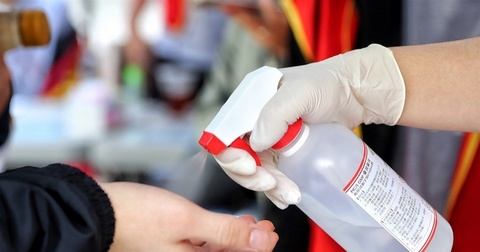Taipei, May 13 (CNA) About 20 environmental protection groups on Wednesday delivered a petition to the Japan-Taiwan Exchange Association, expressing opposition to the discharge of radioactive wastewater from the Fukushima Daiichi nuclear plant into the Pacific Ocean.
Roughly 1.2 million metric tons of contaminated water remains from the magnitude 9.0 earthquake and tsunami that hit the plant on March 11, 2011, destroying key cooling functions and causing a huge leakage of radiation.
The wastewater contains approximately 880 trillion becquerels of tritium, a hydrogen isotope that experts say poses a relatively low risk to human health.
The Japanese government is currently soliciting public opinion on wastewater treatment until June 15, after which it will decide what to do with the contaminated water. One of the options is dumping it into the ocean.
"We learned Japan is considering discharging wastewater from the Fukushima Daiichi plant into the ocean. The plan will cause radioactive contamination to marine ecology. We were astonished to learn this and resolutely oppose it," the Taiwanese groups said in their petition.
The groups said they were not there to protest but to appeal to the Japanese government to listen to neighboring countries and not to make the wrong decision.
Currently, 2,000 groups and individuals around the world have signed a petition opposing discharging the wastewater into the sea, while about 20 groups in Taiwan submitted a petition to the Japan-Taiwan Exchange Association, said Tsui Shu-hsin (崔愫欣), General Secretary of anti-nuclear organization Green Citizens' Action Alliance.
If Japan goes ahead with such a plan, the Taiwanese groups do not rule out holding protests, Tsui said.
Releasing the wastewater into the sea is not the only option, Tsui said, adding that it could also be put into larger storage tanks by consolidating the sludge or soil particles, though that would be more expensive.
Although discharging the wastewater into the ocean is the cheapest approach, "We resolutely oppose using this treatment method," Tsui said.
Despite the fact that plant operator Tokyo Electric Power Co., (TEPCO) has installed filtration systems to remove radioactive isotopes strontium-90 and caesium-137, it cannot remove tritium residue in the wastewater, while 70 percent of the water still contains the radioactive elements strontium-90 and caesium-137.
As such, dumping the wastewater into the ocean, could cause enormous damage to the marine environment, said Tsai Ya-ying (蔡雅瀅), a lawyer affiliated with the Wild at Heart Legal Defense Association.
Japan, a signatory country of the United Nations Convention on the Law of the Sea, should adopt all necessary measures to prevent, reduce and control pollution of the marine environment in accordance with Article 194 of the convention. It also needs to ensure other countries do not suffer from the effects of environmental damage caused by contamination, Tsai noted.
She called on Japan to reject the possibility of dumping radioactive wastewater into the sea to avoid adversely impacting neighboring countries and hurting good relations between Taiwan and Japan.
- Business
U.S. dollar down in Taipei trading
05/29/2020 11:03 AM - Business
Taiwan shares open lower
05/29/2020 09:27 AM - Business
Cabinet approves NT$6.6 billion fund for first-time jobseekers
05/28/2020 10:28 PM - Business
Taiwan to export micro surgical face mask factories
05/28/2020 10:12 PM - Business
Taiwan cuts 2020 GDP growth forecast due to COVID-19 impact
05/28/2020 10:06 PM








